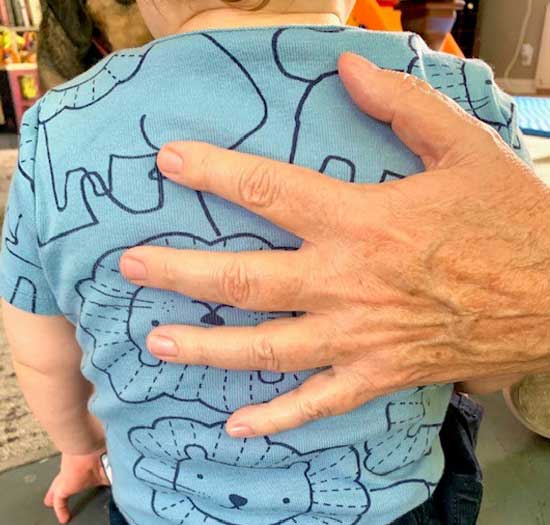Kinship Guardianship Attorney in Santa Fe
KINSHIP GUARDIANSHIP ATTORNEY IN SANTA FE
You’ have found a dedicated and experienced Kinship Guardianship attorney in Santa Fe. The Kinship Guardianship Act allows any qualified person in Santa Fe County to be named as a child’s legal guardian. Court ordered guardianship enables you to step into the parent’s shoes and assume rights and responsibilities over the child in your case.
You can seek guardianship for a child in Santa Fe County when based on one of the follow situations:
- A parent of the child is living and has consented in writing to the appointment of a guardian and the consent has not been withdrawn;
- A parent of the child is living but all parental rights regarding the child have been either terminated or suspended; or
- The child has lived with the petitioner, without either parent, for a period of 90 days or more immediately before the petition is filed and a parent having legal custody of the child is currently unwilling or unable to provide adequate care, maintenance, and supervision for the child, or there are extraordinary circumstances; and
- No guardian has been appointed for the child under the Uniform Probate Code [Chapter 45 NMSA 1978].

GUARDIANSHIP OVER A CHILD IN SANTA FE
Do you live in Santa Fe County? Is a child in your care? Are you having problems with the child’s education, health care, or medical insurance because you have not been named as the child’s guardian in First Judicial District Court in Santa Fe?
For over twelve years, Matthew Legan Sanchez has guided New Mexicans through the Kinship Guardianship process in Santa Fe, New Mexico.
Sanchez has the needed experience to handle your Santa Fe guardianship case with Judges Matthew J. Francis, Maria Sanchez-Gagne, and Matthew J. Wilson.
Call (505) SANCHEZ to learn more about your unique situation and the Kinship Guardianship Act in Santa Fe.
FAQs FOR KINSHIP GUARDIANSHIP IN FIRST JUDICIAL DISTRICT
WHAT IS THE KINSHIP GUARDIANSHIP ACT IN SANTA FE, NEW MEXICO?
The Kinship Guardianship Act does the following:
- Creates a system for establishing a legal relationship between a child and kinship caregiver, when the child is not living with either parent; and
- Provides New Mexico children with a stable and consistent relationship with a kinship caregiver. This relationship enables children to develop physically, mentally, and emotionally when parents are not willing or able to provide the children with adequate care, maintenance, and supervision.
WHO CAN REQUEST KINSHIP GUARDIANSHIP IN NEW MEXICO?
Any adult with whom the child lives. The adult requesting guardianship is not required to be the child’s blood relative. The following caregivers may request guardianship:
WHERE DO I FILE FOR KINSHIP GUARDIANSHIP IN NEW MEXICO?
You will file the Petition for Kinship Guardianship in the Family Court (i.e. Domestic Matters Court) in the jurisdiction where you live. For instance, Albuquerque residents will file the Petition for Kinship Guardianship with Second Judicial District Court. Rio Rancho residents would file the Petition with Thirteenth Judicial District Court.
WHAT MUST I PROVE TO BE APPOINTED AS A CHILD’S KINSHIP GUARDIAN?
To be appointed as a child’s Kinship Guardian you must prove:
- The parents’ consent to the guardianship;
- The parents’ rights have been terminated or suspended by prior court order; or
- The child has been residing with the proposed guardian, without a parent, for 90 days or more, immediately preceding the date that the petition is filed and the parent with legal custody is currently unwilling or unable to care for the child, or there are extraordinary circumstances; and
- No guardian is currently appointed under the Probate Code [Chapter 45 NMSA 1978].
The proposed guardian must prove the elements above by clear and convincing evidence. For Indian born children, the burden of proof is proof beyond a reasonable doubt. See §40-10B-8(C).
WHAT HAPPENS AT THE FIRST KINSHIP GUARDIANSHIP HEARING?
The assigned judge reviews the petition to ensure that the court has jurisdiction to hear the issue, and that proper notice has been served on the necessary parties. The judge then determines if the proposed guardian can prove the elements necessary to be appointed as the child’s kinship guardian. If the proposed guardian cannot meet the necessary elements, then the case will likely be dismissed. If the parents’ consent to the proposed guardianship, then the judge will likely name the proposed guardian as the child’s kinship guardian. If a parent appears and objects to the proposed guardianship then the judge must appoint a guardian ad litem (GAL) to conduct an investigation and make recommendations regarding the child’s best interests. When a GAL is involved, the court generally will grant the proposed guardian, temporary guardianship for a period of 180 days or less.
WHAT RIGHTS AND RESPONSIBILITIES WILL I HAVE AS A CHILD’S KINSHIP GUARDIAN?
A kinship guardian has the legal rights and duties of a parent, except the right to consent to the child’s adoption. Additionally, the guardian does not have the parental rights and duties that the court orders for the parent to retain. For instance, the court may grant the parent visitation or communication with the child, if it is in the child’s best interests.
CAN I RECEIVE CHILD SUPPORT AS A KINSHIP GUARDIAN?
Yes. The court may order a parent to pay the costs of support and maintenance to the extent that the parent is financially able to pay. See § 40-10B-8(D).
WILL THE MINOR INVOLVED HAVE THEIR OWN ATTORNEY?
If the child’s parent objects to the proposed guardianship, then the court must appoint a guardian ad litem (GAL) to represent the child’s “best interests.” See § 40-10B-9. The GAL acts as an arm of the court, and assists the court by representing the child’s best interests. The GAL acts as the child’s voice regarding the child’s best interests. The GAL will conduct an investigation to determine if it is in the child’s best interests for the proposed guardian to be appointed as the child’s kinship guardian. The judge will also determine how the GAL’s expense will be split between the parties.
WHAT HAPPENS IF THE CHILD’S FATHER IS UNKNOWN?
When a child’s father is unknown, the proposed guardian can file a motion asking the court to waive the notice requirement. The proposed guardian may be required to prove the efforts that have been made to locate the child’s father. In situations where the father’s location is unknown, the assigned judge may require the proposed guardian to serve the father through publication, or by another means that informs father about the requested guardianship.
IF I AM GRANTED KINSHIP GUARDIANSHIP, DO THE CHILD’S PARENTS STILL HAVE RIGHTS?
Parents maintain the right to visit and communicate with their child when the assigned judge finds that it is in the child’s best interests. The judge also determines if the parents should pay child support. Unlike adoption, under the Kinship Guardianship Act, a parent’s rights are not terminated. This means that parents can motion the court to revoke the kinship guardianship.
HOW CAN I END OR REVOKE MY CHILD’S KINSHIP GUARDIANSHIP IN SANTA FE, NEW MEXICO?
Kinship guardianship can be revoked by court order. Any person, including a child who has reached his or her 14th birthday, can motion the court to revoke kinship guardianship. See NMSA § 40-10B-12.
The person requesting to revoke the kinship guardianship must include in the motion a proposed transition plan that assists with the child’s reintegration into the parent or new guardian’s home.
If the court finds that a preponderance of the evidence proves a change in circumstances and the proposed revocation is in the child’s best interests, it shall grant the request to revoke, and:
- Adopt a transition plan proposed by the party or guardian ad litem;
- Propose and adopt its own transition plan; or
- Order the parties to develop a transition plan by consensus, if they will agree to do so.
WHAT IS A KINSHIP GUARDIANSHIP ORDER AND WHAT DOES IT DO?
The guardianship order appoints the proposed guardian as the minor’s guardian. This court order should outline the guardian’s rights and responsibilities. This order may grant the guardian:
- Guardianship over the child until the minor child reaches 18, or until further court order;
- Legal rights and responsibilities of a parent, except the right to consent to the child’s adoption;
- Suspension of parental rights relating to the minor child until further court order; or
- Child support.
The order may grant the child’s parent:
- Specific communication and visitation with the child; or
- Rights or privileges that the court believes is in the child’s best interests.
The order is also important as it proves to others (i.e. school and medical) that you have been appointed as the child’s legal guardian and have assumed parental rights.
SANTA FE CHILD GUARDIANSHIP LAWS
Santa Fe guardianship issues are generally handled through the Kinship Guardianship Act. Caregivers can be granted rights and responsibilities for a child when parents are unable or unwilling to care for a child. Any qualified person can request Kinship Guardianship over a child in Santa Fe, state of New Mexico.
Do you want to become the court appointed Kinship Guardian for a child in Santa Fe? Do you and the child live in Santa Fe? If so, you will need to file the Petition for Kinship Guardianship in First Judicial District Court in Santa Fe County.
Do the child’s parents agree to you being named as the child’s guardian? If so, then you will need to properly complete and file the proper paperwork. Are the parents refusing to grant you guardianship, even though the child is in your care? Are the parents unfit to properly care for the child? If you answered yes, then the Santa Fe Court will evaluate if the proposed Kinship Guardianship is in the child’s best interests.
The process of investigating a child’s best interests involves the work of a Guardian Ad Litem. The GAL acts as the child’s advocate and conducts a thorough investigation regarding all of the facts and circumstances. The GAL acts as an arm of the court, making recommendations to the Santa Fe Court regarding the child’s best interests.
KINSHIP GUARDIANSHIP ATTORNEY IN SANTA FE
Are you seeking guardianship of a minor child in Santa Fe, or Los Alamos, NM? Are you looking to revoke Kinship Guardianship in Santa Fe County? Matthew Legan Sanchez is a Santa Fe child custody and guardianship attorney with over a decade of Kinship Guardianship experience.
Sanchez is an experienced custody attorney that ensures all legal paperwork is filed correctly. Sanchez has the experience that you need to present evidence to support your guardianship request in Santa Fe.
Matthew Legan Sanchez is a Santa Fe divorce attorney for child custody and guardianship that is ready to serve. Sanchez serves First Judicial Court and nearby cities such as Rio Arriba, Tierra Amarilla, and Los Alamos, New Mexico.

